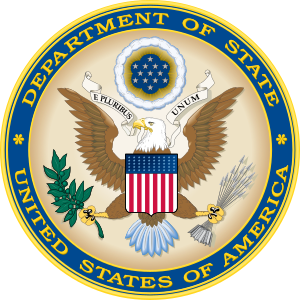The Hong Kong government is paying for discredited Reparative or Sexual Orientation Conversion Therapy (SOCT) for LGBT citizens.
Since June, the Hong Kong Government Social Welfare Department has been using the Christian SOCT organisation New Creation, to train the department's social workers in ”converting” their young clients' sexual orientation.
The concept has long been promoted by US evangelical groups. Now it is reaching around the world with 'conversion' a major component of anti-gay efforts by evangelicals in Africa and hundreds of 'Christian' clinics in Ecuador inflicting physical and psychological torture on lesbians to try to “cure” them.
In the Bavarian city of Munich the Union of Catholic Physicians in Germany recently announced it had found a cure for homosexuality.
Germany's LSVD gay and lesbian association executive director, Klaus Jetz, says conversion therapists are a growing problem in Germany.
Mainstream medical associations universally pan the idea that you can 'pray away the gay' and the movement has lost ground in the US due to media exposure and general mockery of some of its more patently absurd elements.
Michelle Goldberg at the Daily Beast, just wrote about the 'End of the Ex-gay Movement'.
This followed the news that a 21 year veteran of the primary American 'ex-gay' group Exodus International, with 11 years on the board of directors, John Smid just wrote that:
In Hong Kong a coalition, Tongzhi Community Joint Meeting, was formed to launch a global petition campaign against the Hong Kong government paying for 'pray away the gay' training. More than 20,000 signatures have been collected. In addition, a solidarity protest led by LGBT Asian American groups took place in New York back in August.I also want to reiterate here that the transformation for the vast majority of homosexuals will not include a change of sexual orientation. Actually I’ve never met a man who experienced a change from homosexual to heterosexual.
They say that the government is violating the Guidelines on Code of Practice for Registered Social Workers, the World Health Organization's position on sexual orientation, the Hong Kong Bill of Rights, the Convention of the Rights of the Child, the Convention on the Elimination of All Forms of Discrimination against Women, Guidelines on Sex Educations in Schools issued by the Curriculum Development Council of HKSAR, the Code of Professional Conduct by Medical Council and the Chinese Classification of Mental Disorders.
The Social Welfare Department refused to publicize the details of what they were planning, but LGBT activists managed to collect a list of related documents which they published on a webpage “WiGayLeaks” [zh]. The documents show that the efforts are based on the “sick model” assumption with an attempt to convince the attendees that “same sex attraction is curable” and draw co-relation between homosexuality with AIDS and other sexual transmitted diseases.
In Ecuador, activists have managed to get numerous 'pray away the gay' clinics shut down. Hopefully the people in Hong Kong will have similar success.














 Join our page
Join our page

